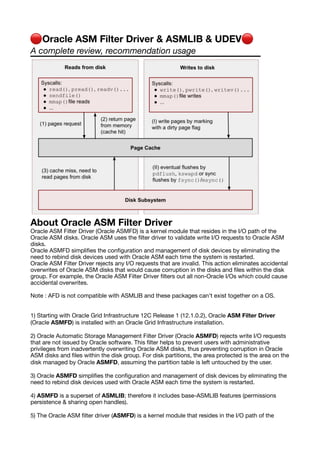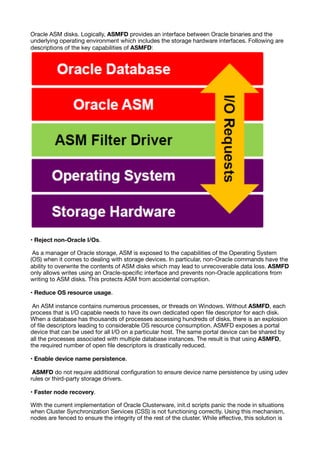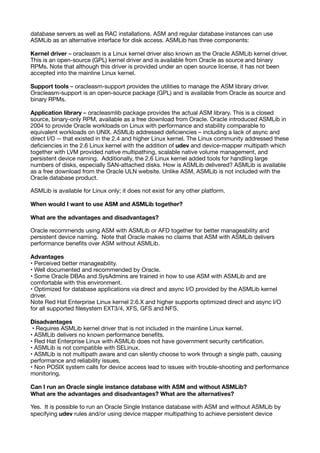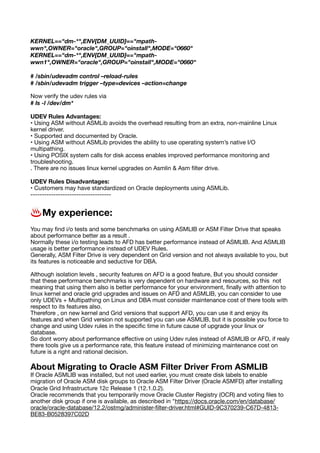1) The document discusses Oracle ASM Filter Driver (ASMFD), ASMLIB, and how they relate to managing I/O for Oracle databases on Linux. ASMFD replaces ASMLIB, providing persistent device naming and preventing accidental overwrites of Oracle disks.
2) It provides information on when and how to use ASM with and without ASMLIB, alternatives to each, and how to configure Oracle single-instance and RAC databases with and without ASM and ASMLIB. Configuration without these components can use filesystems, LVM, or third-party cluster file systems instead.








